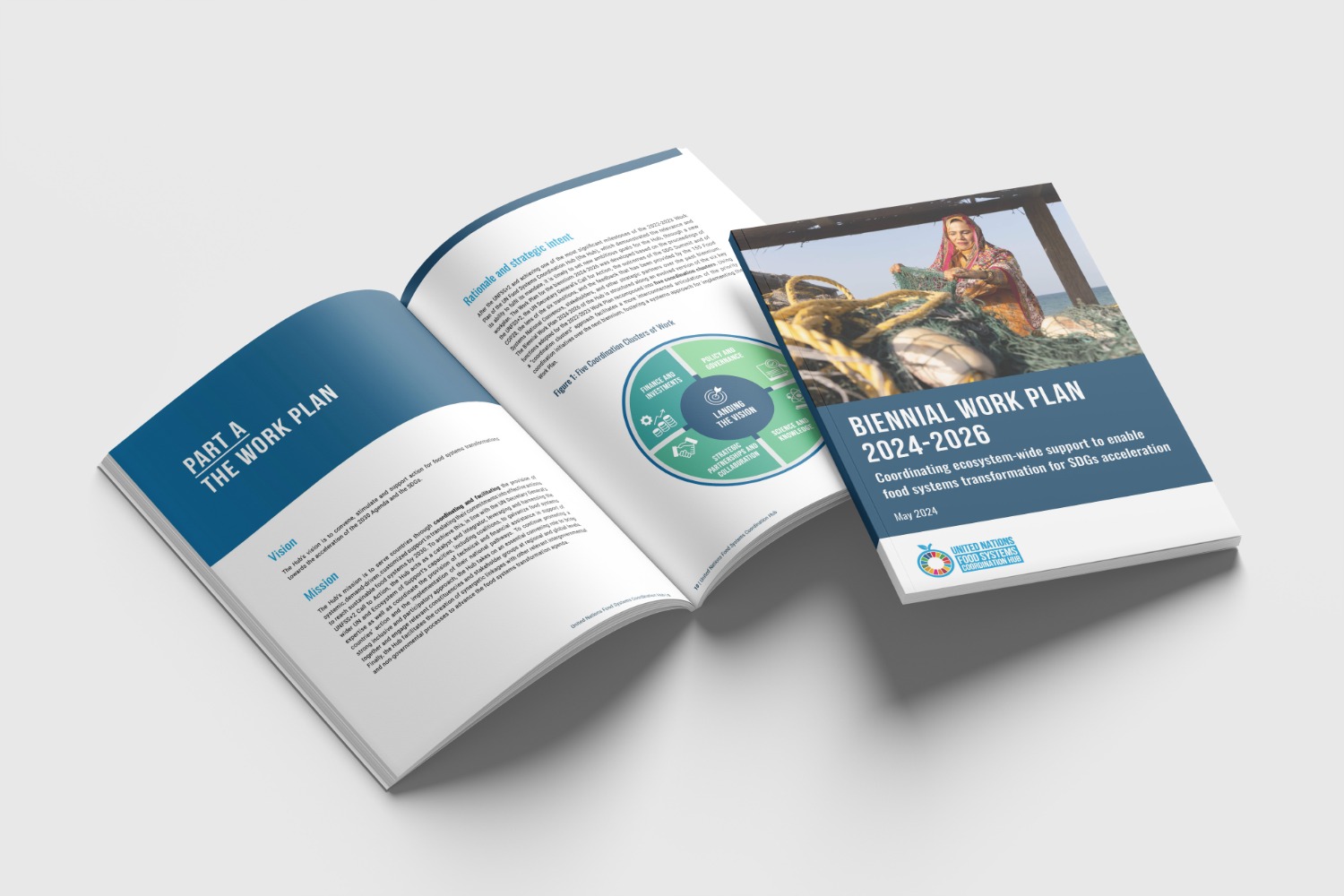SEED FUNDING JOINT PROGRAMMES
Cambodia
Transforming Cambodia’s food systems to become more sustainable, inclusive, and resilient


PROJECT TITLE | Transforming Cambodia’s food systems to become more sustainable, inclusive, and resilient |
| Context | Cambodia’s National Pathway is the outcome of an extensive consultation process, involving more than 2,000 people throughout thirty dialogues, which identifies four priority areas, namely healthy diets for all, empowerment of youth, women and vulnerable groups, resilient livelihoods and food systems, inclusive governance. Acknowledging the risks posed by climate change to hard won development gains and as a co-founder of the Alliance of Champions for Food Systems Transformation, Cambodia is prioritizing the integration of climate change and food systems transformation, building coherence across the agendas. The Council for Agricultural and Rural Development, the government agency coordinating food security and nutrition initiatives in Cambodia, is leading collaborative efforts to translate national aspirations into concrete action. |
| PUNOs | FAO, WFP, UNICEF |
| Contribution to SDGs | SDG 2 Zero Hunger |
| Contribution to other SDG transitions | Climate, biodiversity, pollution |
| Duration | August 2024 – July 2025 |
| Expected financial leverage | $3 million |
| Alignment with SG Call to Action | Policy integration; Food systems governance; Inclusive and participatory design; Private sector engagement |
| Outcomes | The Joint Programme fosters an enabling environment for food systems transformation by enhancing national capacities and policy frameworks, identifying opportunities to unlock financial streams, and strengthening advocacy efforts for food systems transformation. The JP provides crucial support to the alignment of the climate and food agendas, accelerating progress towards resilient, sustainable and inclusive food systems. |
| Partners | Council for Agricultural and Rural Development (CARD) will be the main government counterpart and will coordinate the government activities in conjunction with other key Ministries, including:
|
| Outputs |
|
National pathway operationalization
Policy coherence
Inclusive dialogues
Advocacy
Unlocking finance
Food-climate convergence
The Biennial Work Plan 2024-2026

31/05/2024
Following the Hub’s 2022-2023 Biennial Work Plan, the new Work Plan of 2024-2026 reaffirms the mission of the Hub to focus on serving countries through coordinating and facilitating the provision of systemic, demand-driven, customized support in translating their commitments into effective actions to reach sustainable food systems by 2030. The emphasis remains on concretely facilitating the coordination of support to countries in collaboration with agencies supporting the Hub at HQs, regional and country levels, the wider UN System, Resident Coordinators (RCs), UN Country Teams (UNCTs), and the national Ecosystem of Support (EoS) to ensure profound and sustainable impact.
This Work Plan is structured along an evolving version of key functions adopted for the 2022-2023 Work Plan recomposed into five coordination clusters. This “coordination clusters” approach facilitates a more interconnected articulation of the priority coordination initiatives over the next biennium, fostering a systems approach.
This Work Plan is structured along an evolving version of key functions adopted for the 2022-2023 Work Plan recomposed into five coordination clusters. This “coordination clusters” approach facilitates a more interconnected articulation of the priority coordination initiatives over the next biennium, fostering a systems approach.
